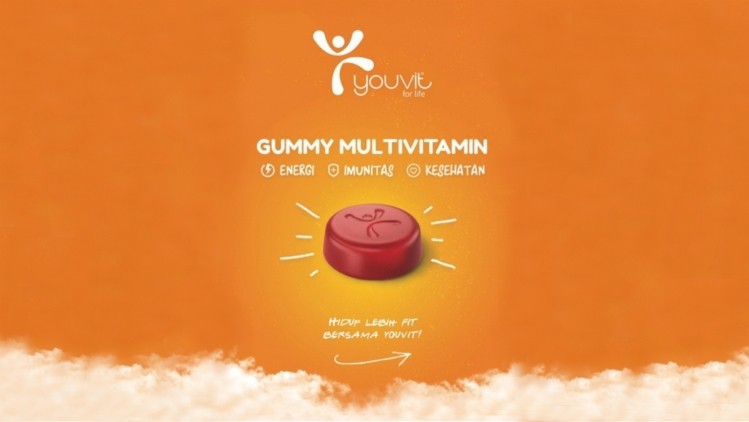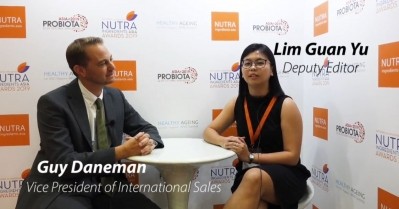Gulfood 2018
Indonesian candy giant expands into Asia's gummy vitamin market

The joint project to produce Youvit is with an undisclosed Dutch company based in Singapore.
The gummy multivitamin contains 10 vitamins and two minerals: A, B3, B5, B6, B7, B9, B12, C, D, E, selenium and iodium.
Heru Adiutama, business development director of PT Yupi Trading International, said it was a tricky process to incorporate all the vitamins and minerals into the gummy tablet; the development took about a year.
"The challenge was to have multi-vitamins in gummy form with good taste, and at an affordable price," he said.
The gelatin used in the vitamin gummy is beef-based, and it has been completely halal-certified.
"We are now introducing it to other interested parties (from other markets)," he said. He declined to reveal which other markets apart from suggesting Singapore, but they are understood to be mainly within Asia.
Further developments
Yupi has been collaborating with local and regional pharmaceutical companies on private-label manufacturing for a few years, and has recently grown the number to 15 firms.
Adiutama said the company had also begun producing other types of vitamin gummies or "functional gummies", such as those containing docosahexaenoic acid (DHA) or omega-3, or minerals such as zinc and collagen.
"Gummy multi-vitamins are difficult to produce. Especially if it has zinc or DHA, it is difficult to mass-produce," he explained.
While he was reluctant to name the partnering companies, he said several "regional players" had been collaborating with them on these vitamin and functional gummies.
"They (the partnering pharmaceutical companies) have expanded (existing) projects, since Yupi has been considered to have the technical know-how and facilities to handle more intricate or complex products on a big scale," he said.
Healthier reformulation
On top of expanding into vitamin gummies and functional candy, Yupi has been attempting to keep up with market trends by reformulating some of its confectionery.
Adiutama said that while the company had been doing well, market trends were changing and it must keep up to remain competitive.
"More developed markets like Japan, Korea and Taiwan are more inclined to healthier products. They're looking for products that use more natural ingredients and colours — anything that’s healthier."
He said manufacturing products with natural ingredients was more expensive, but the company must follow the trend in order to give consumers what they want.
He added that there had been increasing concern from parents and governments in developed countries.
However, in developing markets, affordability is a greater concern.
"If it costs 50% more, they won't buy it. If it costs 10% more, maybe (they will)," he said.
Middle East markets
Whether for their own products or private-label partnerships, Adiutama said Yupi was working closely with distributors on further distribution opportunities, including to more country markets. He said the recent Gulfood 2018 show was "a good avenue".
According to him, the Middle East market is growing and people there "consume a lot".
"We've noticed their consumption patterns show they are taking (a significant amount of) sweets, chocolates and others."
At Gulfood, Yupi was also hoping to introduce existing distributors to their new products. "Here, they can see it and feel it," he said.
Yupi is especially famous in South East Asia for its Gummy Burgers and Baby Bears. Adiutama said its products are now present in about 40 to 50 countries around the world.
All of Yupi's operations are in Indonesia, and it relies on wholesalers and distributors to market its products.


![“The availability [of Halal ingredients] now has become less of an issue, and we now focus our energy on creating the optimal product formulation rather than simply just trying to find whatever Halal source we can get for our product,” said NoorVitamins CEO Dr. Mohamed Issa](/var/wrbm_gb_food_pharma/storage/images/_aliases/wrbm_medium/publications/food-beverage-nutrition/nutraingredients-usa.com/article/2018/04/16/as-availability-of-halal-certified-ingredients-continues-to-rise-noorvitamins-shifts-focus-to-optimizing-formulations/8086172-3-eng-GB/As-availability-of-Halal-certified-ingredients-continues-to-rise-NoorVitamins-shifts-focus-to-optimizing-formulations.jpg)















